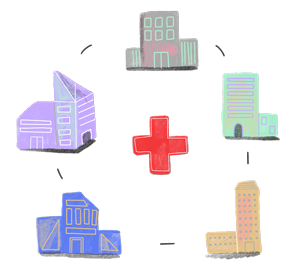Quite often, people and a range of media refer to the Cures Act Final Rule as the “Open Notes Rule.” This is inaccurate.


Quite often, people and a range of media refer to the Cures Act Final Rule as the “Open Notes Rule.” This is inaccurate.
The 21st Century Cures Act was signed into law by President Obama in 2016 with overwhelmingly bipartisan support. Information sharing is central to the Cures Act Final Rule released by the Office of the National Coordinator for Health Information Technology (ONC) in 2022. Some refer to this as the “information sharing rule.” It mandates that patients have rapid, free and full access upon request to test results, medication lists, referral information, and clinical notes, all in electronic formats.1
Some also refer to the Cures Act Final Rule as the “Open Notes Rule.” This is inaccurate. Although ONC strongly supports the concept of ‘open notes’ and work by the OpenNotes movement headquartered at Beth Israel Deaconess Medical Center, the Cures Act Final Rule and ‘open notes’ are not synonymous. The Rule extends well beyond clinical notes.
See the ONC’s relevant FAQ about clinical notes.
Learn more about the Cures Act Final Rule and what it means for patients and clinicians.
How Sharing Clinical Notes Affects the Patient-Physician Relationship JAMA (2021)
US policy requires immediate release of records to patients BMJ (2021)
Open Notes: New Federal Rules Promoting Open and Transparent Communication Jt Comm J Qual Saf (2021)
New U.S. Law Mandates Access to Clinical Notes: Implications for Patients and Clinicians Annals of Internal Medicine (2020)
After office or tele-visits, doctors, nurses and other health care providers write notes that summarize important information about their patients. Notes become a part of a person’s medical record, and when notes are shared with patients they become an ‘open note.’ Learn more about open notes for patients.
OpenNotes is an international movement spreading, studying, and teaching about transparent communication among patients, families, and clinicians. When clinical notes are shared with patients, we call these ‘open notes.’ Based at Beth Israel Deaconess Medical Center, a major Harvard Medical School teaching hospital, OpenNotes is not-for-profit and is funded entirely by federal and philanthropic grants and gifts. It does not develop software and is not a technology company.
1 Salmi L, Blease C, Hagglund M, Walker J, DesRoches CM. US policy requires immediate release of records to patients. BMJ 2021; 372 :n426 doi:10.1136/bmj.n426
![]() Except where otherwise noted, the content by OpenNotes is licensed under a Creative Commons Attribution 4.0 International License.
Except where otherwise noted, the content by OpenNotes is licensed under a Creative Commons Attribution 4.0 International License.
NEW WEBINAR
Getting It Write: What To Do Now That Patients in England Can Read Their GP Notes
Tuesday, November 1, 2022 | 8am Pacific Standard Time (PST)
11am Eastern Standard Time (EST) / 3pm Greenwich Mean Time (GMT)
While open notes have been the “law of the land” in the United States for more than a year, in England, adult patients accessing care through the National Health Service (NHS) will have access to their primary care record online for the first time starting Nov. 1, 2022.
In this webinar, we’ll be joined by open notes experts and discuss what this change means for patients and general practitioner (GP) staff in England.


